Oil price posts two-year highs - but how long can it last?
Brent rose above $59 a barrel this week, its best third-quarter showing since 2004

A free daily email with the biggest news stories of the day – and the best features from TheWeek.com
You are now subscribed
Your newsletter sign-up was successful
Oil price: speculators still betting oil will rise – even as prices fall
15 February
Even as the price of oil continued to slump, investors convinced recovery is on the way have pushed the value of long bets to an eight-month high.
According to Bloomberg, managed money long positions on West Texas Intermediate crude oil (WTI) today reached their highest since June. At the same, the price of WTI fell 0.7 per cent.
The Week
Escape your echo chamber. Get the facts behind the news, plus analysis from multiple perspectives.

Sign up for The Week's Free Newsletters
From our morning news briefing to a weekly Good News Newsletter, get the best of The Week delivered directly to your inbox.
From our morning news briefing to a weekly Good News Newsletter, get the best of The Week delivered directly to your inbox.
At 1.11pm Singapore time today, says Bloomberg, WTI was fetching $29.25 a barrel.
Last Thursday, WTI touched $26.05 a barrel - its lowest price since 2003. It rallied 12 per cent the next day but still closed the week 4.7 per cent down.
Stockpiles of oil are at an 86-year high globally, with the contents now worth three times less than the barrel holding them.
So why on earth are speculators prepared to gamble the price will rise?
A free daily email with the biggest news stories of the day – and the best features from TheWeek.com
Phil Flynn, a senior market analyst at Price Futures Group in Chicago, told Bloomberg a "growing number" of investors expect production to slow as oil companies reduce the scale of their operations to deal with falling profits.
Speculators think the worst will soon be over, he said, adding: "There's a growing realization, after all the announcements of cuts in capital expenditures, that we're going to see a drop in production."
The evidence is there: oil firms including Chevron and Anadarko have said they plan to reduce outlay, with Bloomberg reporting a group of 44 North American oil exploration and production companies are to spend just $78bn on projects this year, down from $101bn last year.
The eight-month high in long bets comes just as the world's biggest oil companies got together in London for International Petroleum Week - and warned the outlook was more than gloomy.
Patrick Pouyanne of Total, Europe's biggest refiner, said the industry was "facing a crisis", while BP boss Bob Dudley described himself as "very bearish".
Meanwhile, new data shows supplies of WTI in the US are hovering near their highest level since the 1930s - and the International Energy Agency has increased its estimate of global oversupply for the first half of this year by 250,000 barrels a day.
Oil prices jump after Opec deal speculation
12 February
Oil prices jumped today after the United Arab Emirates raised hopes of a coordinated production cut. However, analysts say the chances of such a move is still low and the long-term oil price downturn has not changed.
Brent and US West Texas Intermediate (WTI) crude both gained as much as six per cent against their previous settlements this morning.
At 9.38am, (GMT) Brent was up 4.9 per cent at $31.53 per barrel, while WTI was up 4.5 per cent at $27.39 per barrel.
However, both are on track for weekly losses of more than 7 per cent and 11 per cent, respectively, says Reuters.
UAE's energy minister Suhail bin Mohammed al-Mazrouei said the Opec oil cartel was willing to talk about cutting output with other exporters – but analysts remain sceptical.
"The comments by the UAE oil minister are pushing prices up… but we're still in a long-term downturn. That hasn't changed," said Hans van Cleef, the senior energy economist at ABN AMRO.
Today's spike is an indicator that we are now in a period of high volatility in the market rather than a one-way price movement, he added.
ANZ bank analysts said they viewed the UAE's comments as "further jawboning, with the likelihood of a coordinated response on supply cuts very low".
Oil prices have dropped more than 70 per cent since mid-2014 as producers every day pump one to two million barrels of crude in excess of demand.
Oil price will recover to $100 unless there is further climate action, says BP
11 February
A global glut of oil will eventually be eroded by steadily increasing demand and its price will spike to $100 a barrel a number of times over the coming years, according to oil major BP.
Spencer Dale, BP’s chief economist, told The Guardian the oil price would return again - and more than once - to the $100 threshold from which it tumbled in its current protracted slump. International benchmark Brent crude was at close to $30 a barrel this morning after another dip overnight.
However, the report has come in for sharp criticism, with Greg Muttitt, of campaign group Oil Change International, branding the findings a "public relations exercise… designed to boost fossil fuels". BP stressed it was simply offering a forecast based on current trajectories. It also outlined scenarios that would see reduced carbon emissions from fossil fuels but which assume more government intervention.
Chief executive Bob Dudley told the Daily Telegraph that while it take many decades for renewable energy to reach critical mass, huge reductions could be made if the industry switched "immediately" from coal-fired power to gas for the bulk of its electricity generation, if moves were made to tackle excess waste such as gas burning and if global carbon pricing was introduced.
The "priority for the world" must be changing a situation where only 12 per cent of energy is converted into useful heat, power or light, he said. The company set out options including ramping up the carbon price from $5 per tonne currently to $100 to fund low-carbon investment.
Such actions, in addition to boosting nascent carbon capture technologies, are likely to be at the top of the agenda after December's agreement by world leaders to limit global temperature rises to less than two degrees Celsius to prevent catastrophic climate change.
Oil price rally another 'false dawn', says global energy watchdog
10 February
The oil price rally of the past couple of weeks was merely another "false dawn" in a market set to become more oversupplied, according to the international energy watchdog.
A recovery from a near 13-year low of $27 per barrel for the international price benchmark Brent crude had already peaked at close to $36 last week and on Monday, the price started to move markedly lower again. Yesterday, the downward move gathered pace and Brent shed eight per cent over the London and New York trading sessions to a little above $30.
According to the International Energy Agency, this was inevitable, as supplies are growing at a time when the world is "already awash with oil".
In its latest set of forecasts, reported by the BBC, the watchdog predicts the return of Iran to the global export market and increases in output from Russia, Saudi Arabia and elsewhere would keep excess supply at two millions barrels a day until March. Even after that, production will exceed demand by 1.6 million barrels a day in the second quarter and by at least several hundred thousand barrels a day through the second half of the year.
Adding to this, demand growth will be lower than expected at 1.2 million barrels a day, amid the slowdown in China and a move to renewable energies.
"If these numbers prove to be accurate, and with the market already awash in oil, it is very hard to see how oil prices can rise significantly in the short term," it added.
The agency cited the speculation of talks regarding coordinated output cuts between Russia and Opec nations, but joined other analysts pouring scorn on the likelihood of success. Reports of mollifying words from the Iranian oil minister helped to lift prices overnight, CNBC says, edging Brent back up to $31 a barrel.
It wasn't just the IEA predicting lower prices for longer yesterday. The Times notes that Dieter Helm, professor of energy policy at Oxford University, told a London conference the potential for big export gains from places such as Iran and Iraq would mean that even in the longer-term future, a price of as low as $50 a barrel will come to be seen as a "very high price for oil".
Oil price: has crucial meeting ended hopes of supply deal?
09 February
Continuing its recent waning from a strong rally in the early part of last week, the oil price fell back on Monday as hopes of a supply deal faded.
At current prices, producers around the world are having to sell at a cash loss – and even where they are not, such as in the Middle East, government budgets are in tatters as a result of steeply lower oil revenues. But there is little hope of a sustained recovery to more realistic levels until the world's largest exporters show they can coordinate cuts to ease a global supply glut.
International benchmark Brent crude jumped from a near 13-year low of $27 a barrel last month to as high as $36 last week, as Russia floated the potential for talks with the Opec cartel to do just that. Talks were held yesterday between the oil ministers in Opec members Venezuela, which has been pushing for a deal, and Saudi Arabia, the bloc's de facto leader.
Reuters describes it as a "make-or-break meeting", so when the Venezuelan minister emerged and described it as "productive" without giving details, sentiment turned negative and prices dipped by around two per cent, to close to $33 a barrel.
"With the possibility of a production-cutting deal quickly fading into the sunset, market participants are once again left to focus on the reality of the oversupplied global market," Dominick Chirichella, an analyst at Energy Management Institute, wrote in a note. Supplies are at least a million barrels a day ahead of demand and Iran's return to the global market could make things worse.
Morgan Stanley has added its voice to predictions the glut will persist until at least 2017. Vitol, the largest oil trader in the world, said yesterday that even an eventual recovery then will be underwhelming as demand softens in the wake of a broader move to renewable energies, capping prices at around $60 for a decade.
In the short term, the only bright spot for oil bulls is the dollar. With expectations of a second US interest rate rise also falling, the greenback has fallen back against other countries, which reduces the cost of oil for overseas buyers in critical industrial markets such as China. This helped prices to recover overnight and Brent was at $33.40 this morning in London.
-
 Political cartoons for February 12
Political cartoons for February 12Cartoons Thursday's political cartoons include a Pam Bondi performance, Ghislaine Maxwell on tour, and ICE detention facilities
-
 Arcadia: Tom Stoppard’s ‘masterpiece’ makes a ‘triumphant’ return
Arcadia: Tom Stoppard’s ‘masterpiece’ makes a ‘triumphant’ returnThe Week Recommends Carrie Cracknell’s revival at the Old Vic ‘grips like a thriller’
-
 My Father’s Shadow: a ‘magically nimble’ film
My Father’s Shadow: a ‘magically nimble’ filmThe Week Recommends Akinola Davies Jr’s touching and ‘tender’ tale of two brothers in 1990s Nigeria
-
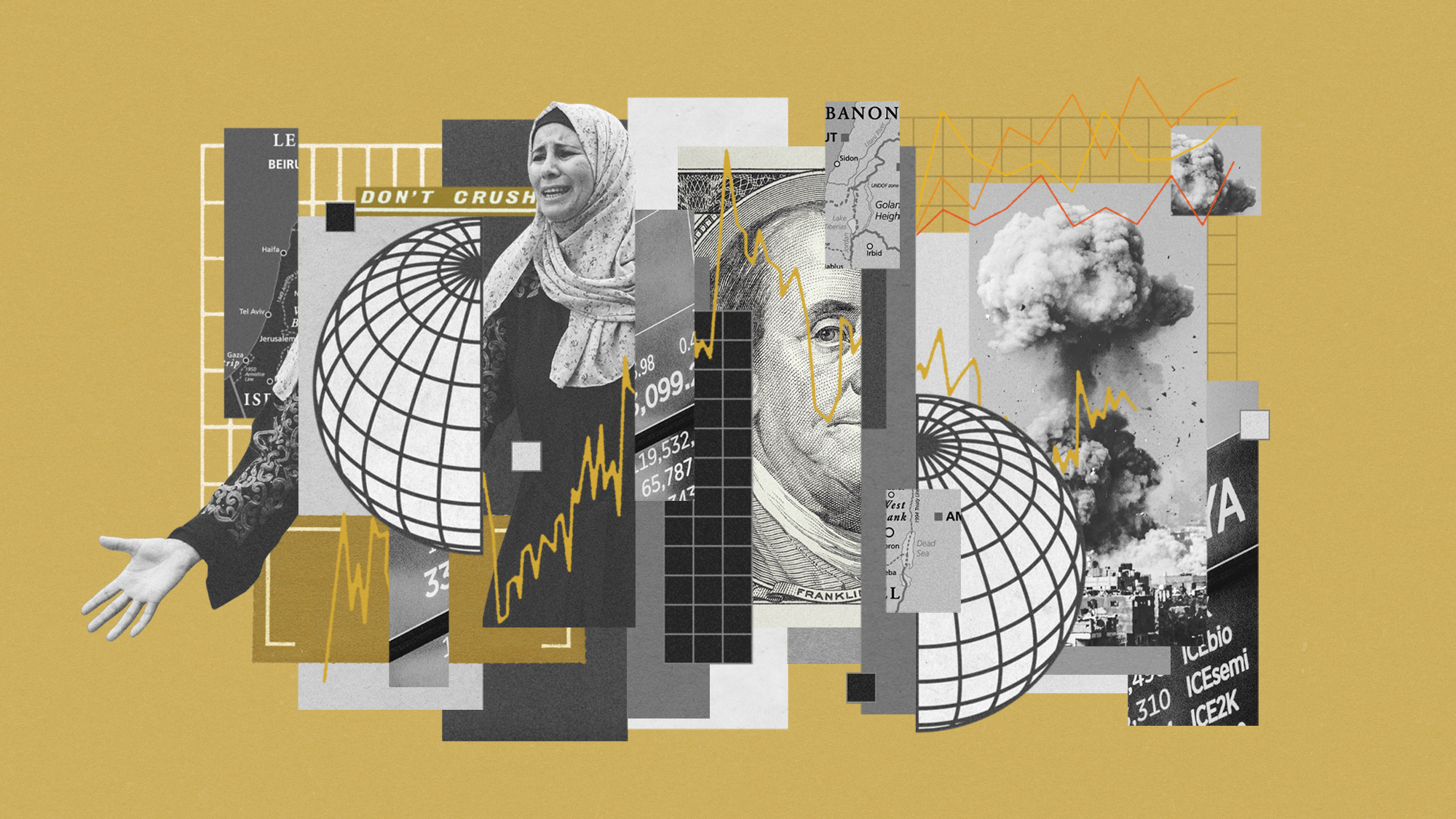 How might the Israel-Hamas war affect the global economy?
How might the Israel-Hamas war affect the global economy?Today's Big Question Regional escalation could send oil prices and inflation sky-high, sparking a worldwide recession
-
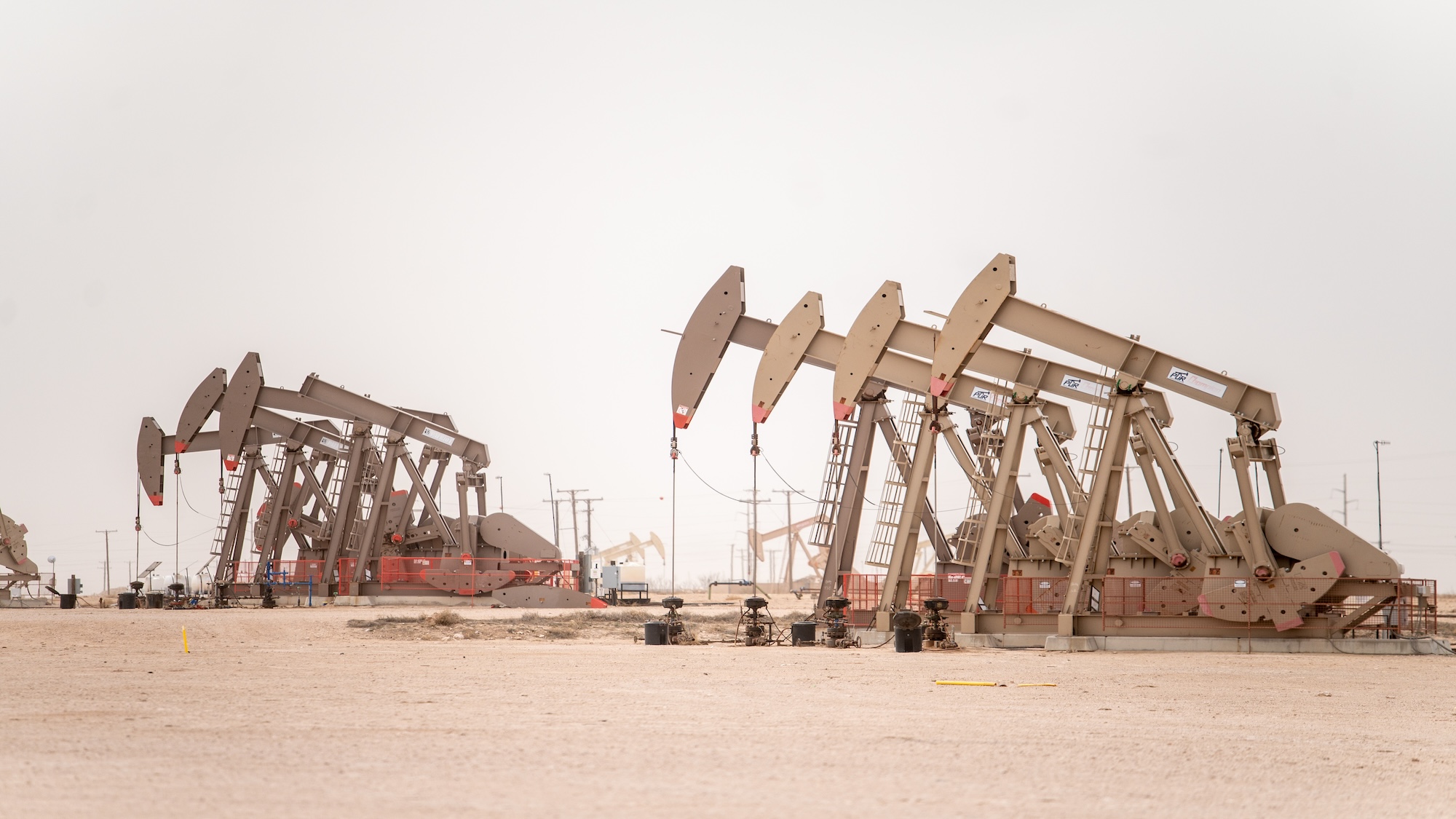 Recent mega-mergers could signal a turning point for the US oil industry
Recent mega-mergers could signal a turning point for the US oil industryTalking Point Both Chevron and Exxon have recently spent billions to acquire smaller oil companies
-
 Has Saudi Arabia lost control of oil prices?
Has Saudi Arabia lost control of oil prices?Today's Big Question Kingdom goes it alone to cut production, risking tension with US and reigniting cooling inflation in Europe
-
 US angered by Opec+ oil cut
US angered by Opec+ oil cutSpeed Read Energy prices to rise further as producers slash supply by two million barrels a day
-
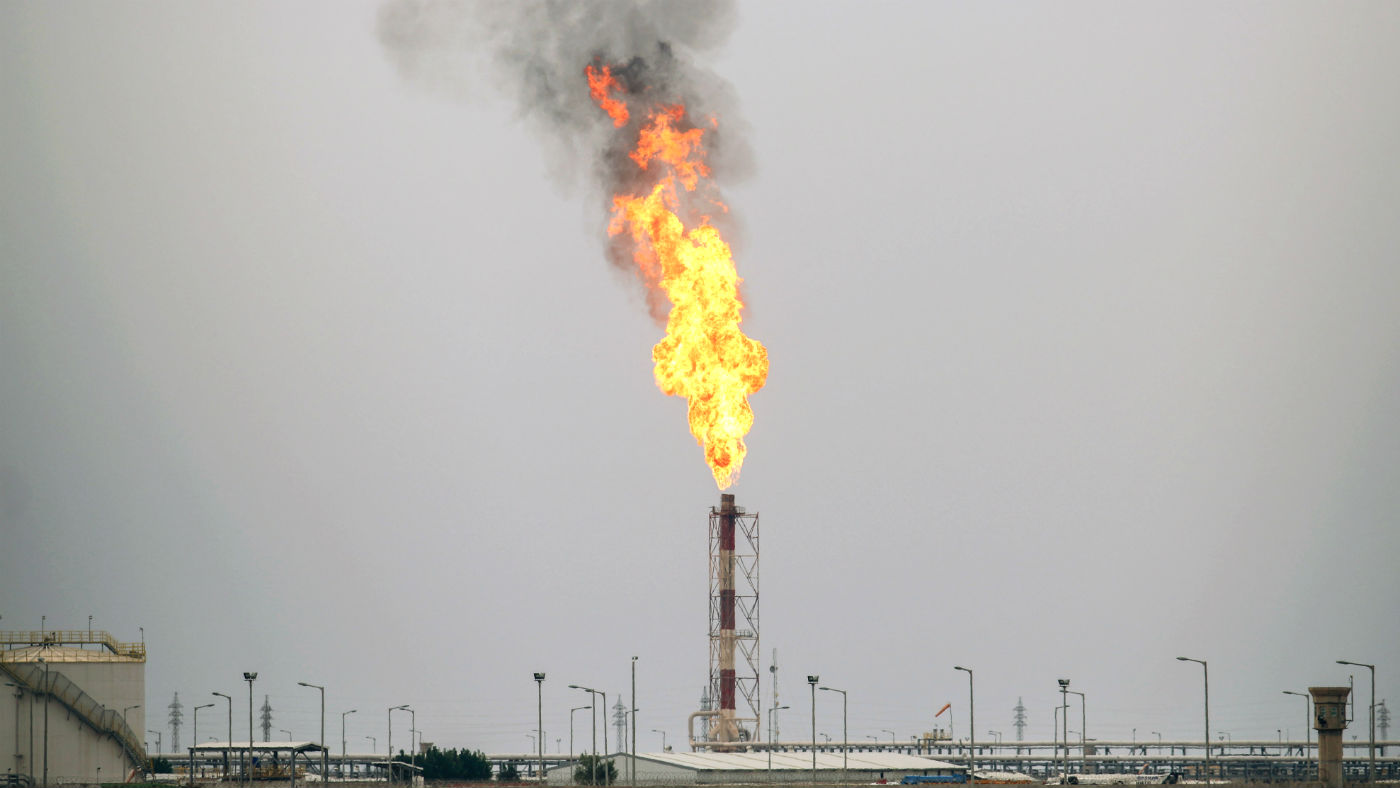 Global oil demand forecast lowered for 2020 and 2021
Global oil demand forecast lowered for 2020 and 2021Speed Read IEA report says jet fuel demand remains the major source of weakness
-
 Are US-Iran tensions flaring again?
Are US-Iran tensions flaring again?In Depth Trump threatens military action over Twitter
-
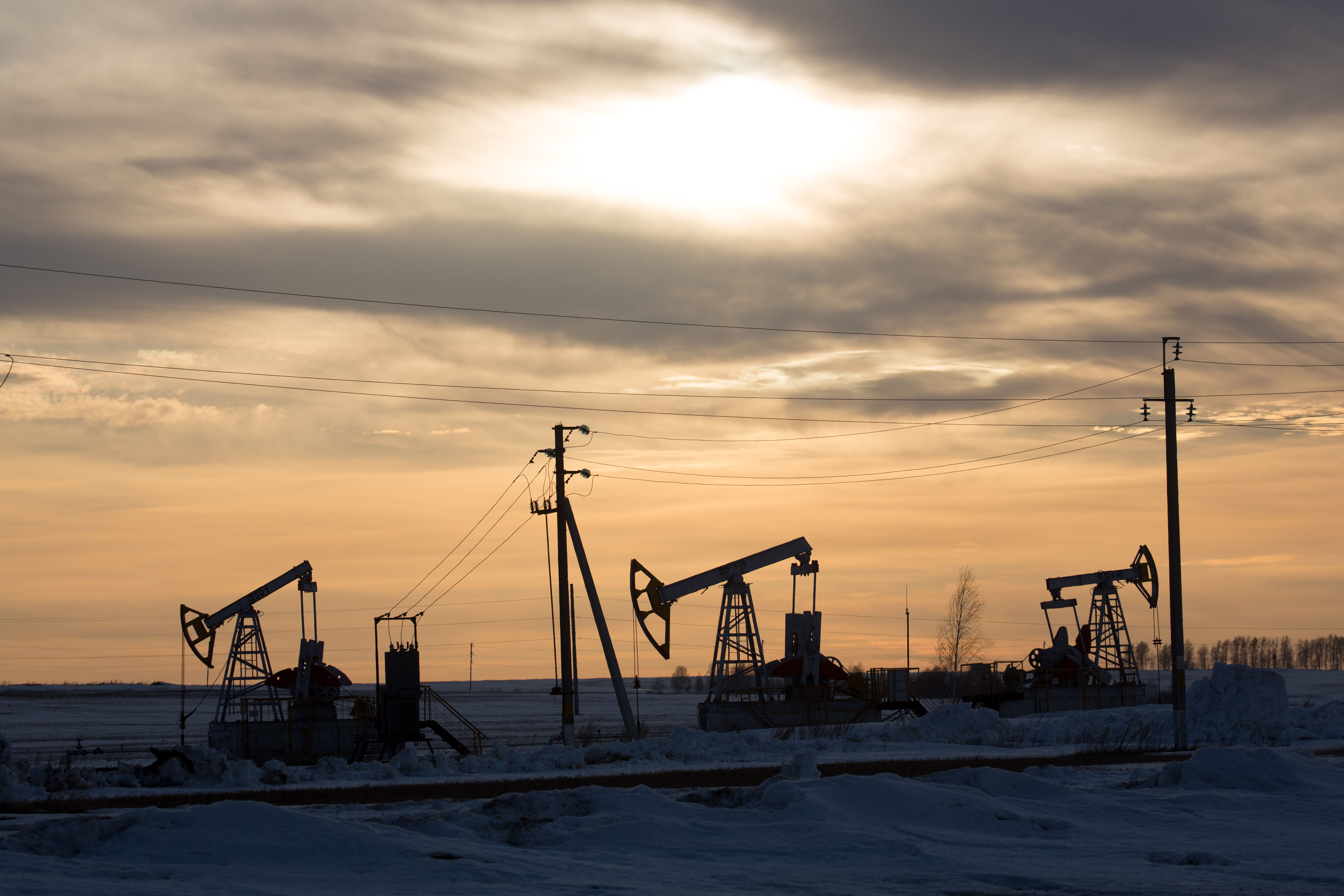 Can a deal be struck to raise oil prices?
Can a deal be struck to raise oil prices?In Depth Opec+ will convene today over video link in a bid to boost crude
-
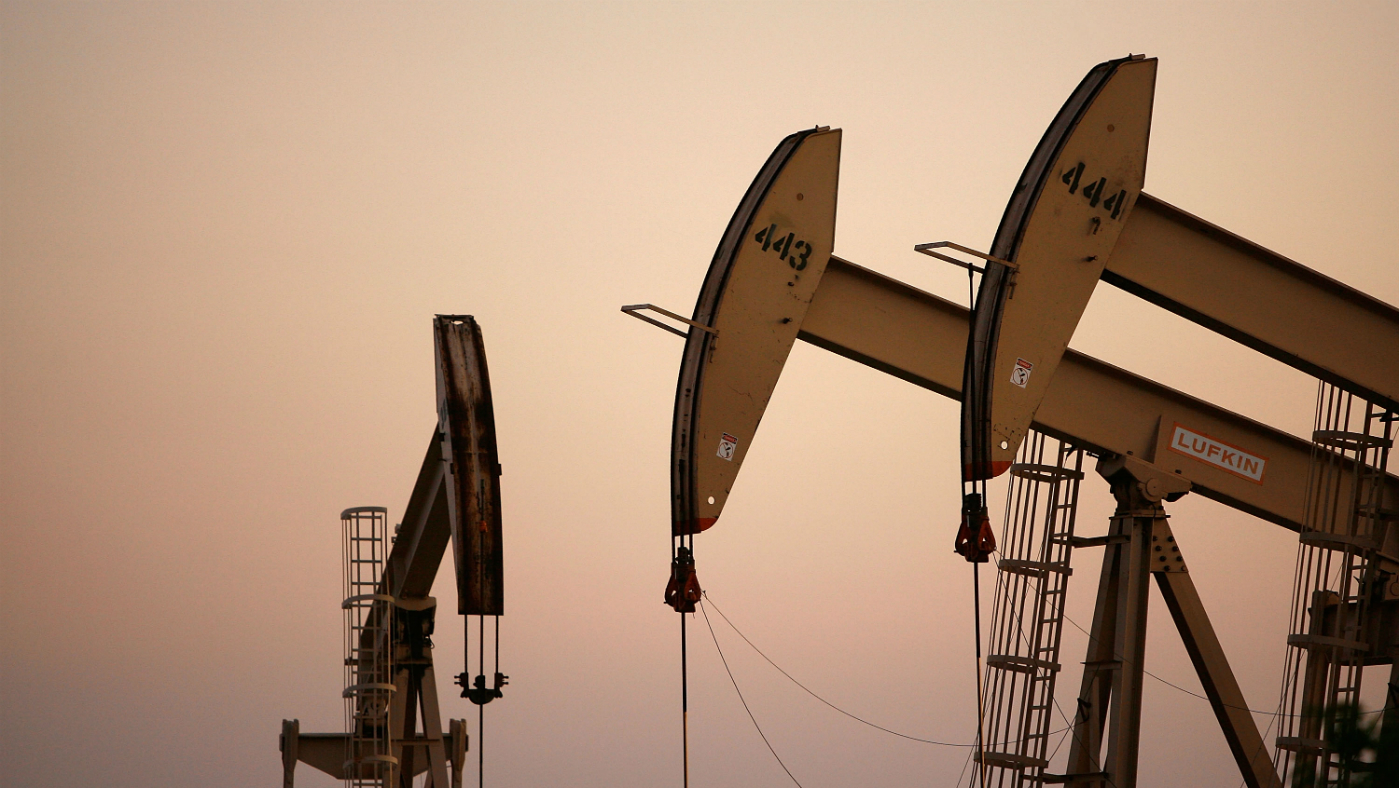 What do negative oil prices mean?
What do negative oil prices mean?In Depth Perfect storm of oversupply and storage shortages sees producers paying to get rid of US crude